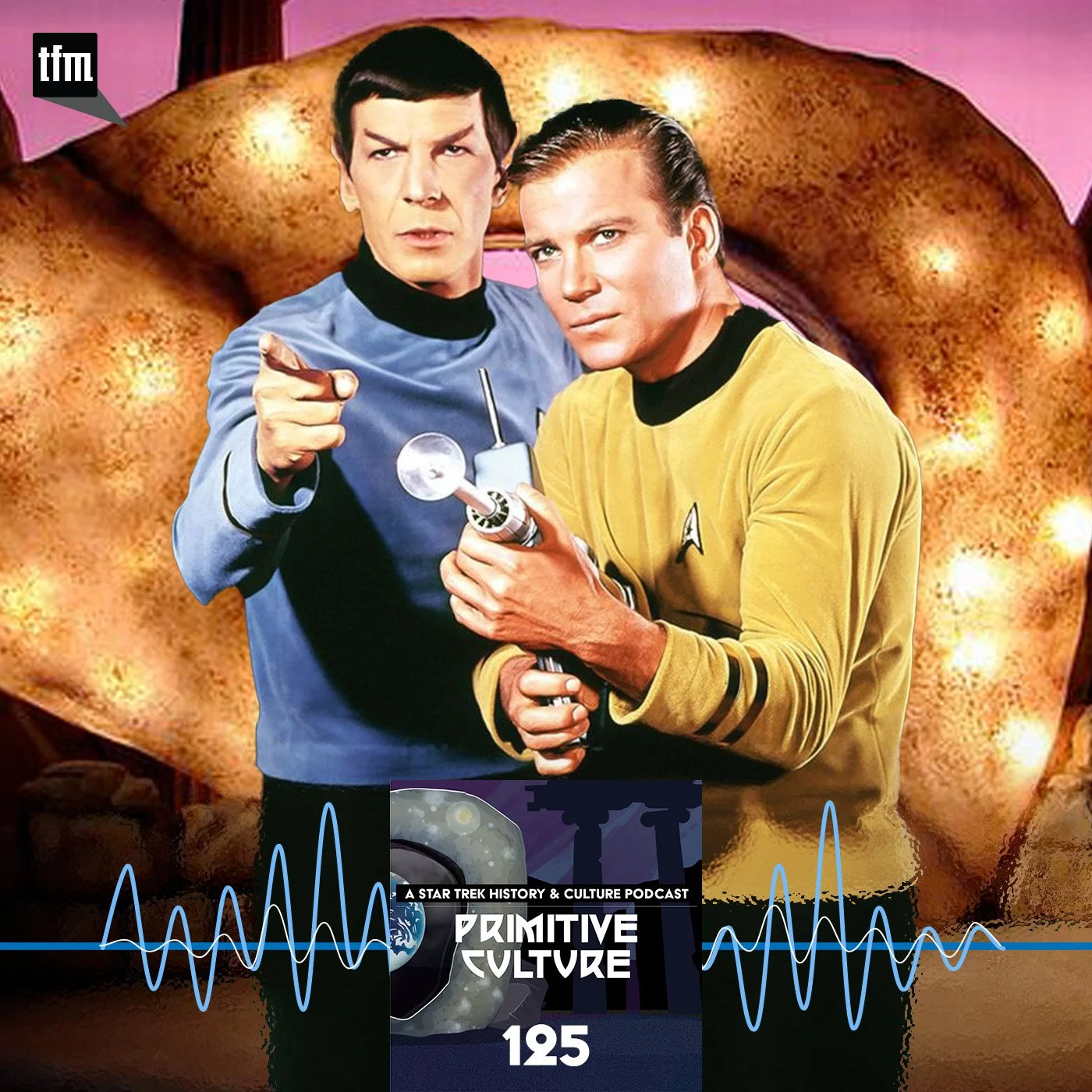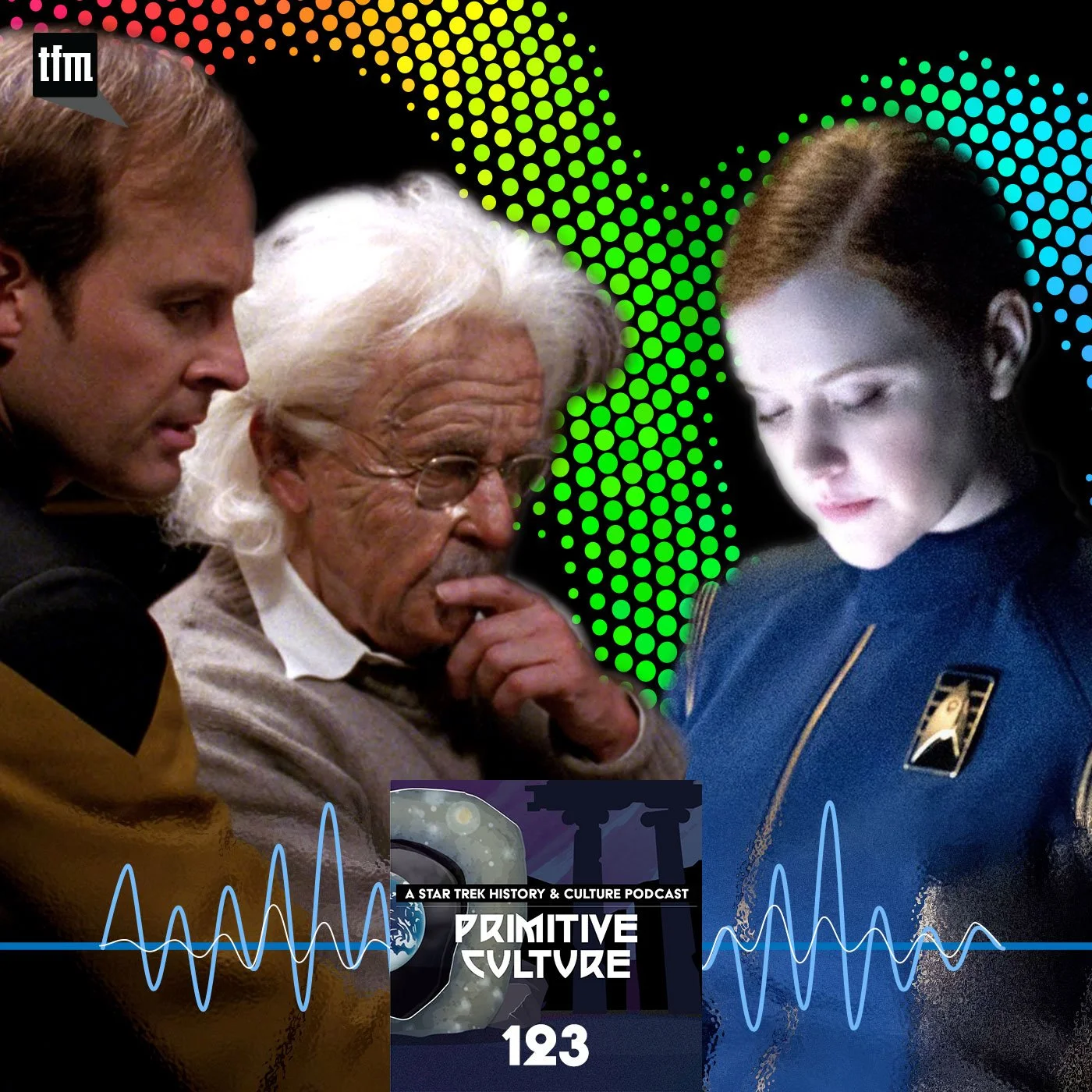Frankenstein and the Star Trek universe.
Running Time: 1 hour 20 minutes 55 seconds
Download / RSS / Send us a message / Discuss the show / Support Trek.fm
Originally published in 1818, Mary Shelley’s groundbreaking gothic novel Frankenstein has been a major influence on many works of dystopian science fiction—so much so that many critics argue she invented the genre. Star Trek itself has borrowed from the literary masterpiece—as well as it's most famous film adaptation—on numerous occasions, from Guinan joking that the eponymous scientist was an old friend in “Evolution” to the crew of the NX-01 bickering over the 1931 movie in “Horizon.”
In this episode of Primitive Culture, host Duncan Barrett is joined by Brandi Jackola for a look at the pervasive influence of Shelley’s novel on the Star Trek universe, from The Original Series through to Picard. We discuss Trek’s various mad scientists—among them the three Soongs, played by Brent Spiner, all of whom owe a major debt to Shelley’s protagonist—as well as look at how the author’s deep empathy for the hideous, ungodly “creature” at the heart of her novel chimes perfectly with Trek’s own approach to humanizing the most alien of antagonists.
Chapters
Intro (00:00:00)
From Prometheus to Picard (00:06:45)
“Prototype,” “Drone,” and “Life Support” (00:19:29)
Cheating Death (00:43:00)
Mad Soongs (00:56:37)
Slippery Slopes (01:08:28)
Host
Duncan Barrett
Guest
Brandi Jackola
Production
Duncan Barrett (Editor and Producer) C Bryan Jones (Executive Producer) Matthew Rushing (Executive Producer) Tony Black (Associate Producer) Clara Cook (Associate Producer) Norman C. Lao (Associate Producer) Amy Nelson (Associate Producer)











